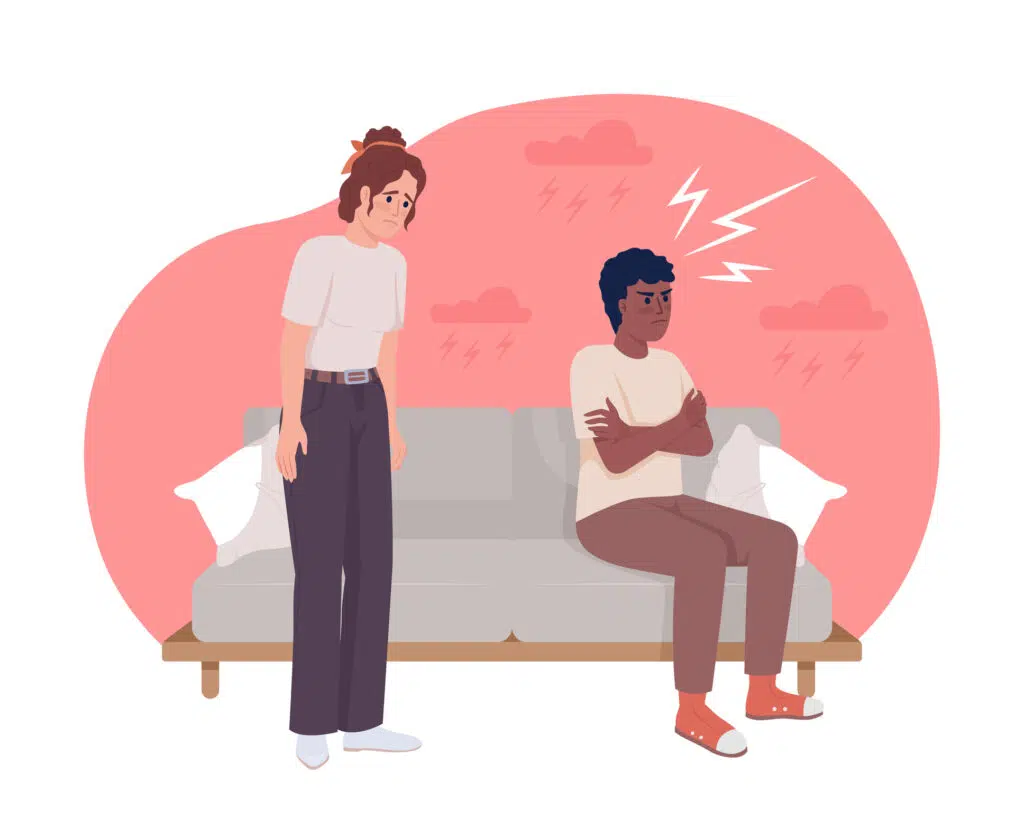Essential Tips For Supporting A Loved One With Bipolar Disorder

Whether it’s a partner, family member, or friend, supporting a loved one with bipolar disorder can be hard. Understanding how bipolar disorder affects someone is the first step in creating a supportive environment. There’s no denying that the condition can put a considerable strain on a relationship and disrupt every part of life. That’s why it’s so important to find a balance between looking after yourself and caring for a loved one.
How Does Bipolar Disorder Affect A Person’s Daily Life?
Bipolar disorder is a serious mental health condition that is characterized by extreme mood swings. People with the disorder can experience intense highs (mania or hypomania) and lows (depression). Symptoms of bipolar disorder include:
- Mania: During a manic episode, individuals may feel elevated, energetic, and euphoric.
- Hypomania: This is a milder form of mania with less severe symptoms.
- Depression: Individuals may feel extremely sad, tired, and hopeless.
Understanding bipolar disorder and how it impacts an individual is the first step in understanding how you can help. Bipolar disorder is a category, and there are different types of the condition depending on the symptoms and diagnosis.
As bipolar disorder can cause extreme shifts in moods, it can have a big effect on relationships. The natural unpredictability of the condition is tough. One review found that negative relationship impacts of bipolar disorder include:
- Volatility in the relationship
- Stigmatization
- Dissatisfaction with sex life
- Lower rates of childbearing
The same review also found that positive effects can come from the illness too, like:
- New hope and perspective
- Strengthening the relationship
- Personal growth
Why Is It Important To Get Help For Bipolar Disorder?
Unfortunately, there isn’t a cure for bipolar disorder. But with treatment, individuals can manage and limit the impact the condition has on their lives.
Bipolar disorder support can include friends, family, mental health professionals, and doctors. Some people may find it easier to speak with a friend, while others may prefer a therapist.
Several reviews suggest a link between social support and mental health. Having a support system can benefit your overall mental health. Social support can offer several benefits to individuals with bipolar disorder, including:
- Emotional support
- Stress reduction
- Encouraging adherence to treatment and healthy lifestyle habits
- Reducing isolation
- Providing stability
- Reducing stigma
8 Tips For Supporting A Loved One With Bipolar Disorder
Supporting someone with bipolar disorder often revolves around education, communication, and self-care as a caregiver. While dealing with bipolar disorder is tough, it’s also hard for the people around you and the relationships you have with that person. Here are eight tips for supporting a loved one with bipolar disorder.
- Educate Yourself
Psychoeducation is the process of teaching individuals and their family members about mental illness. Start by educating yourself and learning about bipolar disorder, including symptoms, causes, and treatment options. You can learn about triggers and symptoms to look out for that could signal a problem. There are many sources you can tap into to start learning more:
- American Psychiatric Association (APA)
- International Society for Bipolar Disorders (ISBD)
- National Institute of Mental Health (NIMH)
- Effective Communication
When you care about someone with bipolar disorder, communicating your needs or how you feel can be tough. No matter what, stay calm, especially when discussing behaviors that you may find challenging. Share any worries and encourage your loved one to discuss their feelings. Even if you disagree with the person, remain calm and respectful and actively listen to them.
- Provide Emotional Support
Recognizing your loved one’s strength and offering positive support appears to be important, rather than nagging or focusing on only the negative. During difficult times, try to be patient and non-judgemental. Come from a place of hope and offer reassurance and encouragement. Whether that’s encouraging healthy habits or adherence to their treatment plan, you can help provide a supportive emotional environment.
For example, instead of saying, “Just snap out of it. You’re being too dramatic,” say, “I’m here for you, and if you ever want to talk or need support, I’m ready to listen without judgment.”
- Encourage Treatment And Self-Care
Treatment for bipolar disorder can include psychotherapy, medication, and self-care strategies. A treatment team can include medical professionals like a psychiatrist, social worker, psychiatrist nurse, and psychologist. Typicaly, medication is a part of bipolar disorder treatment to stabilize moods. Then, talk therapy helps individuals learn about their illness and stick to their medication to prevent future episodes.
In addition to treatment, individuals are usually encouraged to keep healthy habits like regular exercise, sleep, and a healthy diet. Another way you can support a loved one is by supporting their decision to seek professional help and adherence to their treatment plan. At the same time, promote self-care activities that you can do together, like exercise.
- Recognize Warning Signs And Triggers
There are several things that could trigger bipolar episodes. These are often specific to the individual and can look different. Over time, speak to your loved one and their doctor about potential triggers and warning signs so that you know what to look out for. Warning signs of a relapse could include changes in sleep (insomnia), impulsive behaviors, and decreased or increased energy levels. Have a crisis plan in place so you know what to do in times of emergency.
- Don’t Forget About Yourself
Caring for someone else is a delicate balance. If you let yourself go completely, you might not have the energy to support someone else. It’s essential to protect your own well-being and practice caregiver self-care. Set boundaries about what you’re willing to help with and what you are not. Manage your stress and emotions, and be kind to yourself. Try the following self-care tips:
- Join a support group (online or local)
- Exercise regularly
- Get consistent and quality sleep
- Take a break when you need it
- Be realistic about what you can do
- Encourage A Supportive Network
If you can, involve other family members and friends in the support process. Education and raising awareness about bipolar disorder within your social circle and family can help others to understand. There are a number of organizations where you can find online support communities for additional guidance:
- Depression and Bipolar Support Alliance – search by zip code across the country to find local support groups or join online support groups.
- NAMI Family Support Group – a peer-led support group designed for adult loved ones of people with mental health conditions.
- Patience And Flexibility
While everyone experiences ups and downs throughout life, the ups and downs of bipolar disorder can be intense and extreme. Supporting someone with bipolar disorder requires a great deal of patience and positive thinking. Don’t forget to celebrate the small victories and progress along the way.
Treatment for bipolar disorder takes time. There can be setbacks and challenges throughout recovery. Managing bipolar disorder is a lifelong commitment, and being patient and understanding is crucial.
How To Help Someone With Bipolar Disorder
Whether you’re living with a person with bipolar disorder or supporting a partner or friend, dealing with your loved one’s symptoms is challenging. The condition can put a serious strain on a relationship but learning and understanding the condition, its challenges, and ultimately, accepting it can help you to cope.
Empathy, understanding, and self-care are crucial. If you forget about yourself and put all your energy into caring for someone else, it can lead to physical and mental exhaustion. Protecting yourself while supporting someone with bipolar disorder is important. Set boundaries, ask for help when you need it, and find support groups to connect with individuals in a similar situation.
If you’re struggling with your own mental health or think you would benefit from speaking to a professional, the therapists at Thriving Center of Psych can help. Our caring team of therapists can help individuals navigate through difficult times, learn coping methods, and work through tough emotions they may be feeling, like anxiety, anger, and helplessness. Book an appointment today with one of our mental health experts to start your journey to improved mental well-being.

How to Move On After a Friendship Breakup
Friendship breakups can sting just as much as a romantic breakup. After all, you’re experiencing a loss of shared history and an understanding of each other that can leave you feeling lonely and isolated. Not all friendships are forever, but moving on from the loss of a friendship does take time and some self-compassion.

Signs You’re in a Toxic Relationship
A toxic relationship can chip away at your well-being and happiness. Toxic partners can be manipulative and charming, making it difficult to recognize the signs that you’re in a toxic relationship. You deserve to be in a supportive and healthy relationship.

10 Common Marriage Reconciliation Mistakes to Avoid After Infidelity
Infidelity can leave couples devastated. If you’ve been affected by infidelity and want to salvage your relationship, rebuild trust, or make a tough decision, keep reading for 10 common reconciliation mistakes to avoid after infidelity.

Survey: 72% of Americans are Stressing About the Upcoming Presidential Election
Political viewpoints in the U.S. have always been contentious, but is the impact of politics in the United States making it difficult for people to live their everyday lives? With some anticipating another brutal and long campaign season ahead of the upcoming 2024 presidential election, nearly half of Americans say politics is negatively impacting their mental health.




